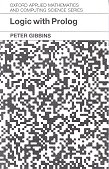This book gives a critical review of work on the foundations of quantum mechanics at a level accessible to nonexperts. Assuming his readers have some background in mathematics and physics, Peter Gibbins focuses on the questions of whether the results of quantum theory require us to abandon classical logic and whether quantum logic can resolve the paradoxes produced by quantum mechanics. He organizes the discussion so as to preserve the complicated interconnections within the philosophy of quantum mechanics and to show the historical development of the subject. He argues that quantum logic does not dispose of the problems faced by classical logic, that no reasonable interpretation of quantum mechanics in terms of “hidden variables” can be found, and that after all these years quantum mechanics remains a mystery to us.
Particles and Paradoxes will provide a much-needed and valuable introduction to the philosophy of quantum mechanics and, at the same time, an example of just what it is to do the philosophy of physics,

